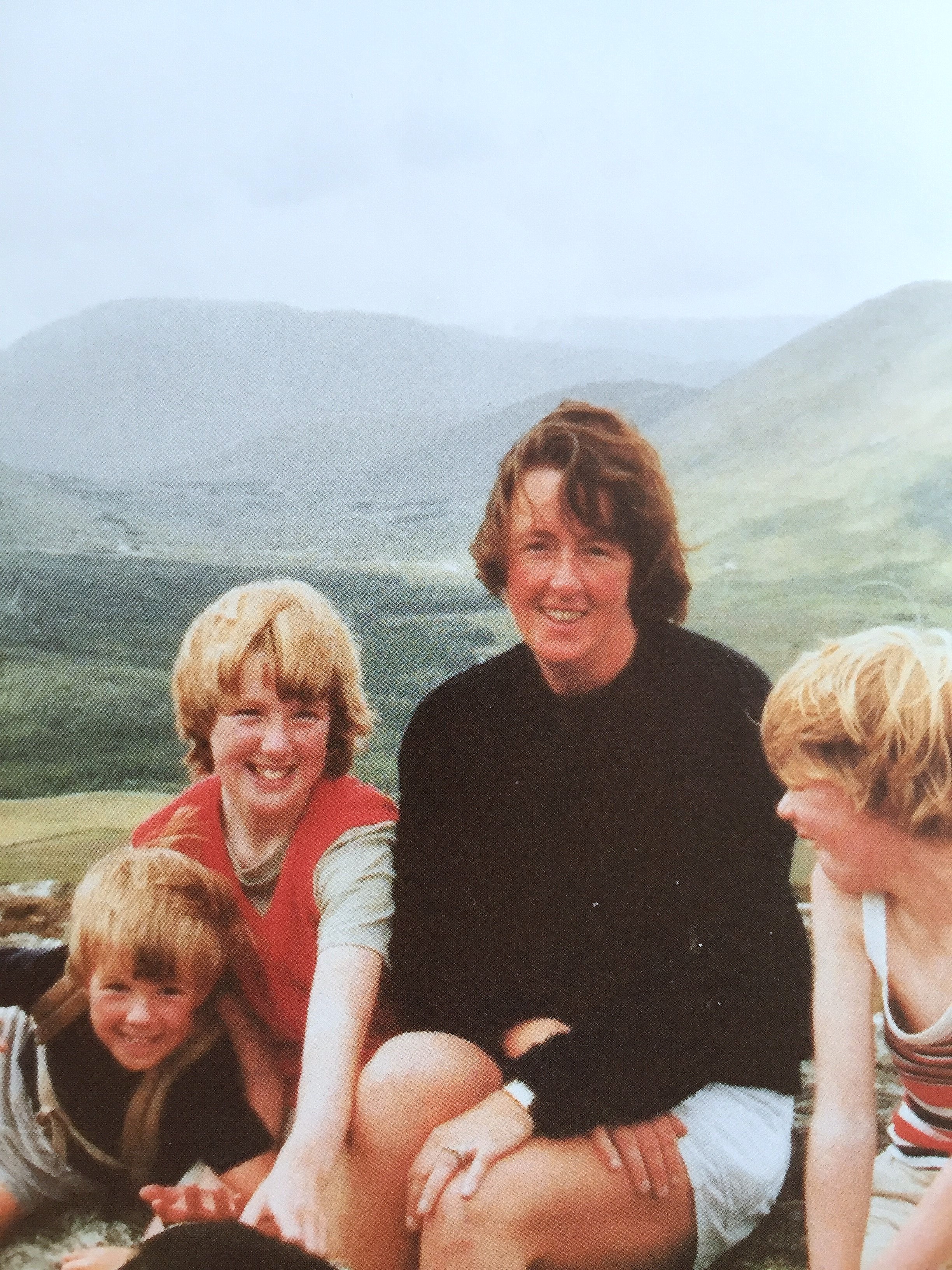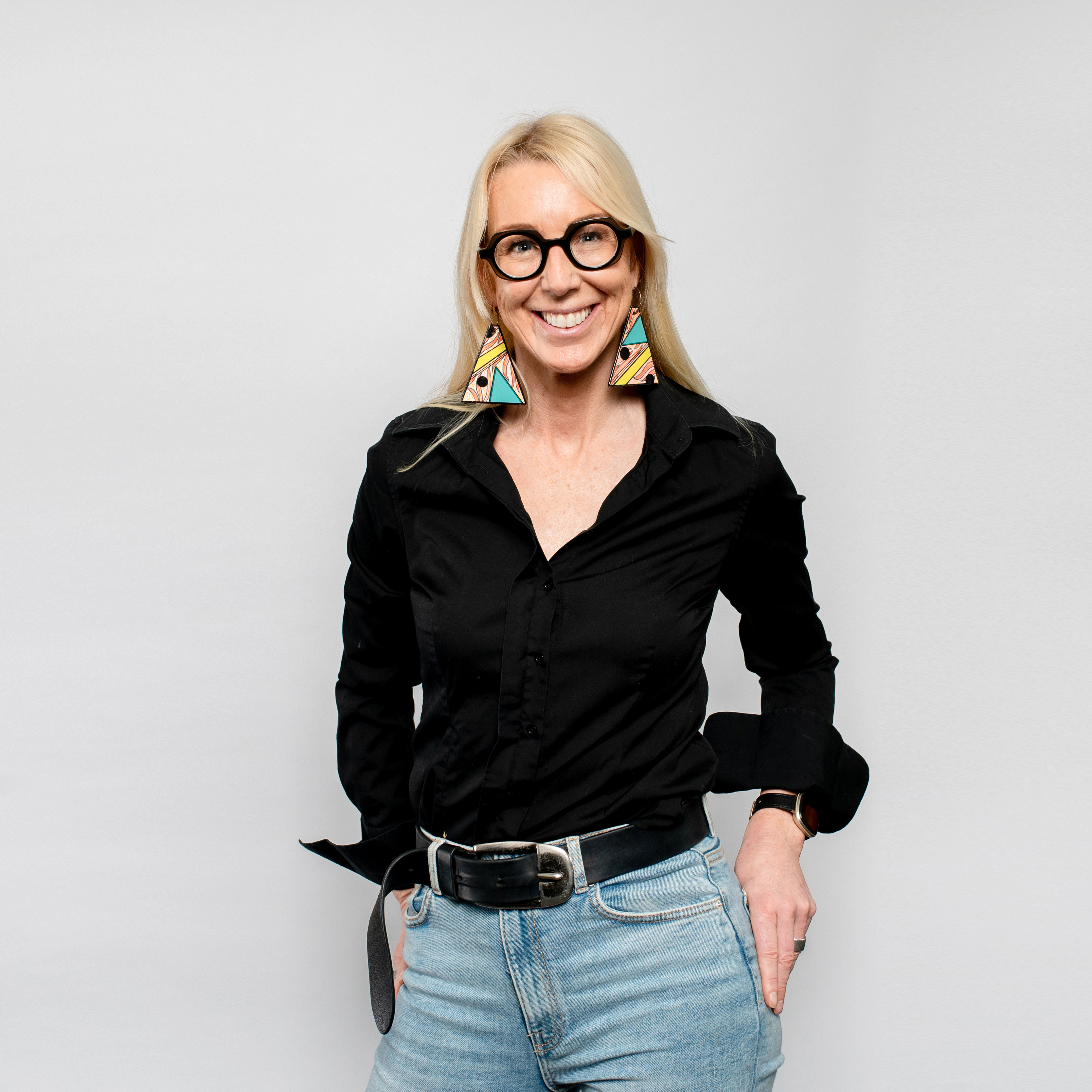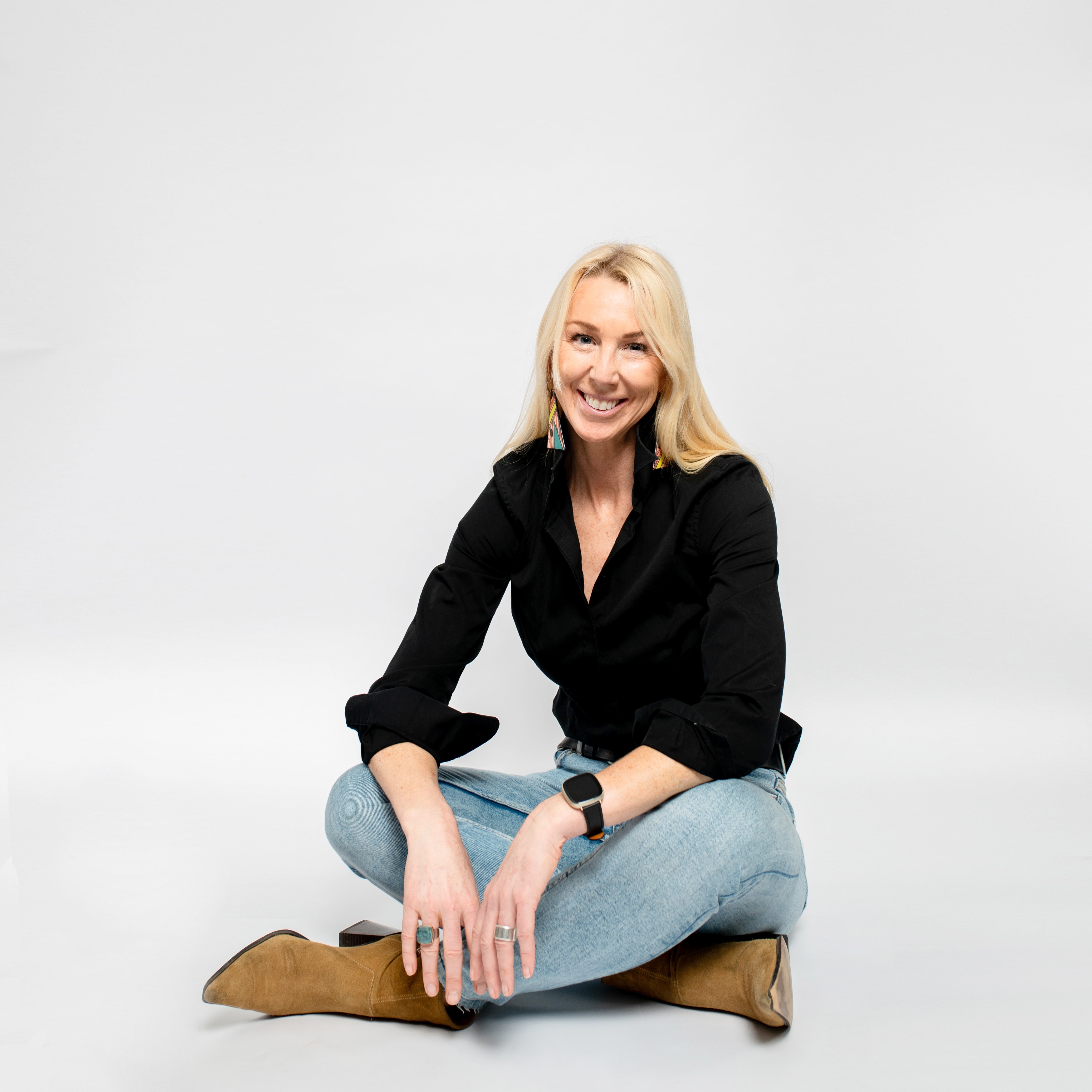Leading with Vision: Caroline Casey on Inclusion, Representation, and the Future of Eye Health
By the Women Leaders in Eye Health Team

In August 2025, we were honored to sit down with Caroline Casey, president of the International Agency for the Prevention of Blindness (IAPB), a global alliance of more than 250 organizations in the eye health sector across more than 100 countries.
It was fascinating to learn about her leadership journey and her perspectives on inclusion, gender equity, and representation in global health. Casey’s inspiring career is a shining example of what WLEH exists to support, and we hope her story will inspire emerging women leaders in eye care.
Long before she became the representative of a high-profile international organization, Casey was a 17-year-old Irish girl learning for the first time that she was born with congenital problems that affected her eyesight: ocular albinism and myopia. Although her family had been aware of her diagnosis all along, they had chosen to withhold this information. This approach, however well-intentioned, left Casey grappling with confusion and frustration after years of struggling without understanding the root cause.
"I didn't understand it, and I didn't understand how to ask for help, so I pretended I didn't know”,
-she says now at age 53.
“I never spoke about my sight loss, and I continued for 11 years, never asking for help and never explaining that I didn't see very well.”

That all changed 24 years ago at age 29, when an eye specialist asked her why she was hiding her condition in her job as a management consultant at Accenture. He asked her what she had wanted to be when she was a little girl. Among her answers was an unusual one: She had wanted to be Mowgli from The Jungle Book.
The doctor urged her to come to terms with being a legally blind person, a moment that changed everything. She took time off from her job and went to India to get as close to becoming Mowgli as she could.
An Irish woman mahout
She trained as a mahout, or elephant handler — the first Western woman to do so. She trekked a thousand kilometers on an elephant’s back; learned the local language, Malayalam; and realized that she was ready to come out of hiding.
.jpg)
“That experience instilled in me this absolute obsession and passion for personal freedom, and not just for myself, but for anybody else.” - she remembers.
“So there was a need to live my life as who I was. The desire to be truly authentic and to be who I am was very big.”
As Caroline reflects, our greatest power is found when we finally accept ourselves — when we stop hiding and start living openly as who we truly are.
%20(1).jpg)
The shift in personal perspective was accompanied by a determination to take action to help others, and the widespread attention she garnered as the only Western woman mahout gave her a platform from which to do so.
She raised money for 6,000 cataract operations to help restore sight to people in India with preventable blindness, a small number compared to the billion people around the world who are blind simply due to lack of access to basic eye care.
“That just broke my heart — the idea that we would ever have anybody in the world who was unnecessarily blind,” she says.
Working with the private sector
That first action to address preventable blindness launched Casey on a 25-year career as a disability advocate using business as a force for change and, in her words, “troublemaker.” She quit her job at Accenture and founded the organization The Aisling Foundation (later renamed Kanchi), a consulting firm to help companies become disability-inclusive as a way to bolster business success. In 2017, frustrated with the speed of change for disability in business, she spearheaded a worldwide call to action known on social media with the hashtag #Valuable, which challenges businesses to recognize the value of people living with a disability across the full supply chain.
In 2019, she created, launched and co-founded the Valuable 500 on the main stage of the World Economic Forum at Davos. The organization’s first aim was to end the global CEO silence on disability.
“My belief has always been that what business values, society will value,” she says. “The world’s greatest social problems cannot be solved without business and, more importantly, business leadership accountability. When you value somebody, you invest in them.”
Her work encouraging the business community to reconsider old attitudes toward disability brought her to the attention of IAPB. The organization coordinates members’ efforts to work toward a world with universal access to eye care. IAPB elected Casey as its next president in 2021.

The power of women in leadership
Working in the business sector provided Casey a powerful pathway for change, but it had its challenges, not the least of which is the male-dominated nature of its leadership. Most of the time, she says, she was so focused on her mission that she didn’t think about her gender as a factor. But occasionally she would run into sexist attitudes that only served to reinforce her opinion that traditionally female traits are some of the most powerful for making change. She remembers one interaction with an Englishman CEO who was taken aback by her level of passion during a speech to a room full of male executives.
“Are you always this emotional?” the man said with derision.
“He tried to make me feel so small,” she recalls. “And actually, I remember turning around to him, and saying, ‘Yes, because the idea that we have an inequality crisis facing 1.3 billion does make me emotional. But don't underestimate me because I have a heart for emotion and can be vulnerable with it. It's what makes me really strong.”
She has little patience for the zero-sum thinking that often characterizes the business world, which she identifies as a perspective often inculcated in men. Women, on the other hand, tend to be socialized to be cooperative and relational, and to seek ways to benefit others.
“I don't believe in the scarcity model,” she says. “I do believe in the power of collective. I'm known for that. I'm obsessed with collaboration, collectiveness, and synchronization because I just love the sense of working together. I think it's a very strong female trait.”
That all being said, Casey has worked with many supportive, collaborative men in her career, and counts men among some of her most important mentors. Her best male mentors, she says, have been the quietest ones, no matter how famous, who only want “to see a human being succeed.”
And meanwhile, she says, “I've learned how to go and resource myself with fabulous female coalitions, and friends.”
Aiming for a holistic approach
Now that she has reached the pinnacle of leadership in global eye health, Casey is aiming high, bringing a message that the entire system of blindness prevention and treatment has to change. She recognizes that it will require a massive effort on a number of fronts, from diagnosis and distribution to regulation and human resources.
“There's so much there, and that's really hard,” she says. “It's actually easier to be more paternalistic, to just say, ‘Well, I'm going to go off and give a billion glasses.’ But that's not going to change the system.”
She sees eye health care as one part of a larger system that needs change. Her vision is of a holistic approach to caring for people and communities, from education to malaria prevention to economic development. Breaking down silos between these efforts can yield outsized results in boosting health, equity, and wellbeing around the world.
“It's about bringing together really strong collectives who are willing to do the long-term work to unblock barriers in the system so that our investments go further,” she says.
Soft front, strong back
Changing how eye health is delivered is a massive task that will take strong leadership, including from women. But Casey emphasizes that “leadership isn't always at the top.” Every individual can be a leader in their own personal sphere and in their own life, acting in ways that inspire others. For Casey, that mindset is at the core of inclusive leadership and translates to a sense of humility and curiosity when leading at the top.

“The most important thing about inclusive leadership is knowing that you don't know it all, and admitting when you don't know, and to be radically curious,” she says.
Casey’s inspiring career showcases the power of leadership that arises from personal conviction and is honed in demanding environments. The result is a combination of passion and practicality that opens the door for big change.
“I'm known to have a soft front, so I do lead with my heart. But I have a very, very strong back — that is, I'm very strategic,” she says. “I am a problem solver. I use data, or I use a plan that other people can engage with. But I have a wild heart, and that wild heart is for ambition. I don't think anything's too big. When I see something that everybody imagines is impossible, I just want to be part of fixing it.”
We were thrilled to hear from Caroline about how a key part of her big-thinking strategy is to support women, in particular younger women, in the eye health sector as well as throughout society.
“Women face a higher risk of vision loss and eye disease compared to men, and the idea that they are not in leadership and decision-making positions simply does not make sense,” she says. “In fact, I would say it threatens our ability to truly ensure everybody everywhere has access to high-quality, affordable eye health. That’s why initiatives like Women Leaders in Eye Health are so important.”
She sees great potential for women to support each other across industries and generations in a way that helps us all. Women Leaders in Eye Health initiative is perfectly aligned with this vision, serving as a vital platform to empower and connect women leaders to drive lasting change.
“I get excited when I see women come together in a positive way to raise each other up to bring that younger generation in,” she says. “What's exciting for me is that we can start seeing women's initiatives in different sectors come together—whether it's women in eye health, or women in disability, or women in tech. We are coming together to support each other within our sectors and outside of them.”
We couldn’t agree more, and all of us at WLEH admire inspiring leaders like Caroline who are leading the way to a more supportive, women-empowering future.
This blog entry was published in October 2025.
